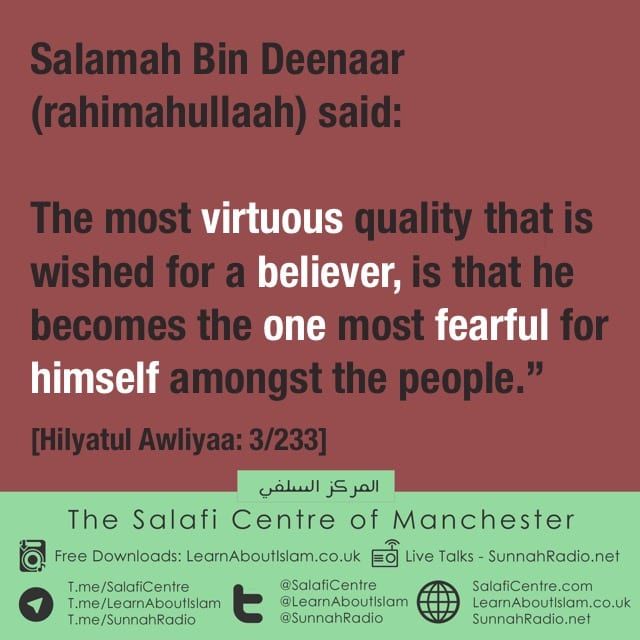In The Name of Allah, The Most Merciful, The Bestower of Mercy.
Al-Allamah Rabee Bin Hadi Al-Madkhali, may Allah have mercy upon him, said:
The entire life of a person is spent in seeking knowledge – from the cradle to the grave. He does not feel proud to acquire truth from a young or older person and he never rejects truth, whether it is stated by a Muslim or unbeliever. Musa, peace be upon him, was spoken to directly by Allah and the Torah was revealed to him, which contained Hudaa [i.e. that which guides a person to Iman, truth and protects one from misguidance] and Noor [i.e. a guiding light in the midst of the darkness of ignorance, confusion, doubts, beliefs and deeds that appear to be truth but are falsehood in reality and evil desires], but when he knew that another person possessed knowledge which he did not possess, (he said): [لَا أَبْرَحُ حَتَّىٰ أَبْلُغَ مَجْمَعَ الْبَحْرَيْنِ أَوْ أَمْضِيَ حُقُبًا – I will not give up (travelling) until I reach the junction of the two seas or (until) I spend years and years in travelling. [Al-Kahf. 60] He went on foot – neither had a car nor a riding beast, nor a horse. He travelled on foot. [1]
Imam Abdul Aziz Bin Baz, may Allah have mercy upon him, was asked: The questioner mentions that he is a fifteen-year-old young man and wants to seek Islamic knowledge, so what is your advice? What are the things that he must do and fulfil? He says: Bearing in mind that our city has few callers to Islam and students of knowledge.
Response: We advise him to seek knowledge in the schools -intermediate and secondary- opened by the government, or the institutes of knowledge. He strives to reach them (or enroll). And if they have gatherings of knowledge by the judges or others, he attends the gatherings of knowledge if it is available at night or during the day- combining this and this. He enrolls in regular schools and makes effort. He reads to the scholars in his township if they have gatherings of knowledge at night or during the day- attend the gatherings, benefit and strive hard to memorize the Noble Qur’an and memorize beneficial books, such as Kitab at-Tawhid, Kishf Ash-Shubuhat, Thalaathah Al-Usul and Qawaa’id Al-Arba’ah by Shaikh Al-Islam Muhammad Bin Abdil Wahhab, may Allah have mercy upon him, and also Al-Aqeedah Al-Waasitiyyah by Shaikh Al-Islaam Ibn Taymiyyah, may Allah have mercy upon him. These are good books that are important to memorise. And books like An-Nawawi’s forty hadeeth and its completion by Ibn Rajab’s Khamseen Hadeeth Min Jawaami Al-Kalim. He memorises these great and beneficial hadiths. In any case, the advice for this young man is that he strive to seek knowledge in regular schools, and from the Shaikhs if he has someone from the Shaikhs to read to in the gatherings of knowledge. [2]
Imam Muhammad Ibn Salih al-Uthaymeen, may Allah have mercy upon him, was asked: “How does a student of knowledge combine between the lessons of Sharia colleges with the lessons of scholars in mosques?”
Answer: I cannot answer this, because everyone knows himself, but I can say that if the regular university lessons clash with the lessons of the scholars, I think a person should be keen on the university lessons if he is to succeed because the period of study at the university is short. And as you now know that positions of leadership in Dawah, education, administration and headship are based on certificates. If a person does not have a certificate, no weight will be given to him regardless of the level of his knowledge. If a student of knowledge seeks knowledge at the university in order to obtain a certificate with which he can reach leadership positions, then this is a good intention and there is nothing in it that would be tantamount to seeking knowledge for other than the sake of Allah in his intention. This is why if two people are presented: one of them has a university degree and the second does not have a certificate, and the second is more knowledgeable than the first, the one who has a certificate is given priority in leadership positions. Therefore, I see that if the lessons in the Sharia colleges clash with the lessons in the Mosques, the student gives precedence to university studies; but if there is no clash, then studying in mosques is compatible with studying at university. The affair is clear that it is possible to combine this and this, given that studying in mosques has now become easy, because most of those who study in mosques have a recorder that records their lectures, the students’ questions and answers. Therefore, if a person takes some of these audio tapes and listens to them in his spare time, it is as if he has not missed anything. [3]
Certificates of Knowledge
Imam Muhammad Ibn Salih Al-Uthaymeen, may Allah have mercy upon him, said that some of the people say that “Sincere intention in this present era of ours is difficult (to achieve) or it may be impossible (to achieve) because those who seek knowledge do so with the aim of receiving a certificate”.
The Imam replied to this statement saying that one’s intention is regarded to be corrupt if knowledge is sought in order to receive a certificate or a desire for an elevated worldly status by way of it. But a person’s intention is regarded to be good and not in opposition to sincerity if he wants an elevated status in order to benefit the people, for he knows that at present it is impossible for a person to achieve a high and beneficial position for the Ummah unless he has a certificate. And because of this, even if one were to find a scholar who is good in various affairs of knowledge but has no certificate, it will not be possible for him to teach even in high school and this is the reality. And you will find that the one lesser in knowledge than this scholar will be accepted (as a teacher) at a university as long as he has a certificate. So in accordance with a person’s (sincere) intention and choices the certificate is not considered harmful and its obtainment enters into the statement of the Messenger, peace and blessings of Allah be upon him, “And what comes to you from this wealth without asking for it or having greed for it, take it; and if not given, do not run for it.” [Al-Bukhaari. 1473] [4]
Al-Allamah Taqiyuddin Al-Hilali, may Allah have mercy upon him, stated about the scholar – Al-Allamah Ahmad Bin Sulayman Ash-Shanqeetee, may Allah have mercy upon him:
He is the Allaamah, the Salafi, the Usoolee, the Mufassir, the skillful author, the poet and one proficient in various sciences of the religion. The likes of this man is rare in his era. He is needed by the teachers of Al-Azhar, the Islamic University of Madeenah and every Arab University. I do not say that he is (only) needed by students, but he is needed by the teachers. One of the adversities that has afflicted the Arabs in this era is the sweeping ignorance and (blameworthy) blind following in their midst, and their adherence to a crooked path, because indeed they do not give consideration to knowledge, but rather they give consideration to superficial certificates that are obtained by many people. They attain the highest ranks in universities, whilst being deaf, dumb, and blind [i.e. they don’t listen to truth, speak truth and contemplate (or see) truth]. I swear by Allaah – besides Whom none has the right to be worshipped- that if the university professors in Europe were to gain access to this man, they would have indeed benefitted from his knowledge and make every conceivable sacrifice to be at his service; but as we say one of the misguided traits of the Arabs (at present) is that indeed [يتركون العين ويطلبون الأثر – they abandon something good that is witnessed or seen, then seek for it after its disappearance]. And due to their dependence on certificates, they are as the poet said: [ولو لبس الحمار ثياب خزّ *** لقال الناس يا لك من حمار – If a donkey wore fine clothes, the people will say, “Oh what a donkey (i.e. praising a donkey just because it is wearing fine clothes does not change its reality!)]. Likewise, when an ignoramus obtains a certificate from a university, the people say, “Oh! What a scholar!” And if he does not have a certificate, they say, “Oh! What an ignoramus”. [5]
Al-Allamah Rabee’s, may Allah have mercy upon him, advice regarding the path to knowledge
Al-Allamah Rabee Bin Hadi Al-Mad’khali, may Allah preserve him, was asked: Which books do you advise the student of knowledge to read-those that give special attention in making clear the Salafi Methodology for him?
Response: Firstly, I advise myself and my brothers (to concentrate on memorising and studying) the Book of Allah, The Mighty and Majestic, for in it is guidance and light. It is the main foundation of Islam and the Sunnah is its explanation and clarification. Thereafter, study the guidance of Allah’s Messenger, peace and blessings of Allah be upon him, from the Saheehayn [Al-Bukhaari and Muslim], the four Sunan [Abu Dawud, Ibn Majah, at-Tirmidhi and An-Nasa’i], the Masaaneed [Musnad Ahmad and others], the Jawami (see footnote a) and other than them.
I advise the students of knowledge to study these three Books of the Sunnah that have been (transmitted) with authenticity from Allah’s Messenger, peace and blessings of Allah be upon him, and that they study some sections in these Ummahaat [i.e. in Bukhaari, Muslim, Nasaa’ee, Abu Dawood, Tirmidhee, Ibn Maajah] and firmly concentrate on them in particular. This is because they are connected to the fundamental principles of the religion, such as kitab Al-Ilm [the Book of Knowledge] in Saheeh Al-Bukhaari and kitab Al-Iman because Imam Al-Bukhaari narrated – in this kitab Al-Iman- ahaadith to clarify the methodology of Ahlus Sunnah Wal Jama’ah in the subject matter of Iman, and in their chapter headings he rebutted the Murji’a- those who oppose this fundamental. He firmly placed in this great book [i.e. Saheeh Al-Bukhari] the Book of Itisam [.e. the book of holding onto the way of the Prophet], the Akhbar Al-Aahad and kitaab At-Tawheed. This is because these are connected to the fundamentals of the religion and they are very important. It is obligatory to have an understanding of them after acquiring understanding of the Book of Allah [The Most High].
Likewise, concentrate on kitab As-Sunnah in Sunan Abee Dawud because it is a very important fundamental and it agrees with Saheeh Al-Bukhari in these affairs that we have mentioned. In it is a notification about bidah-the bidah of the Jahmiyyah, the khawarij and other than them. It distinguished the Aqeedah of Ahlus Sunnah and its Madhab from the deviated Madhabs. So the fundamentals in this subject matter are to be studied.
Likewise, kitab Al-Ittiba by Ibn Maajah [i.e. adherence to the Messenger’s path] and khalq Af’aal Al-Ibaad by Al-Bukhari because through them a person becomes acquainted with great fundamentals from the fundamental principles of Ahlus Sunnah Wal Jamaa’ah regarding matters related to the Qur’an, (sound) creed, the Jahmiyyah and other than them amongst the people of bidah and misguidance. Likewise, the first section of Sharh As-Sunnah of Al-Baghawi because it concentrates on this subject matter. As-Sunnah by Al-khallaal, Sharh Usool Al-ittiqaad Ahlis Sunnah of Laalikaa’ee, Al-Hujja of Asfahaanee, Al-Ibaanah of Ibn Battah and what is similar to that.
Then the books of Shaikh Al-Islam Ibn Taymiyyah and Ibn Al-Qayyim because in them there is an unequivocal and sufficient clarification of the fundamental principles of the religion and its subsidiary affairs, and all praise is due to Allah. In these affairs of knowledge there is life [for the hearts]. Learn the Qur’an, the (sound) creed, the (sound) methodology, the (sound) fundamentals and the (sound) subsidiary issues (of the religion) in a manner as if you were acquiring them from the mouth of Allah’s Messenger, and likewise all the books we have mentioned in a manner as if you were acquiring them (directly) from the mouth of the Messenger, the Sahabah and those who followed their path. Ibn Taymiyyah did not become outstanding, vast in knowledge and well established in clarifying the truth except after learning these books. So we should study these books and these chapters from them, and may Allah bless you.
Then we study all the Sunan. We look into the books of Fiqh, the books of Tafsir, the books of Hadeeth-all of them are beneficial; but (one gives) specific concentration to these affairs [i.e. the creed and methodology], especially in these times because many deviations are (seen from) the people of innovated thought and politics- the Soofiyyah, the Rawaafid and other than them. These innovations, deviations and trials cannot be confronted except through knowledge that is acquired properly from the book of Allah, the Sunnah of Messenger of Allah and the understanding of the Salaf. I ask Allah to grant us and you understanding of His Religion and “Whoever Allah wishes good for, He gives him understanding of the religion.’ [6]
The key point is to put into action the knowledge you have acquired, whether from the Masajid or Shariah Institutions, even if your understanding is limited.
Read:
Had we willed, we would have surely elevated him therewith, but he clung to the earth
I have met the Mashayikh
[1] Marhaban Yaa Talib Al-Ilm. 245-248
[2]
[3] Majmu Fatawaa 26/161-162
[4] Sharh Hilya Taalib Al-Ilm..page:22
[5] An Except from Sabeel Ar-Rashaad Fee Hadyi Khayr Al-I’baad. 3/18-19
[6] An Excerpt from ‘Fataawaa Al-Mar’atil Muslimah Page: 71-72











